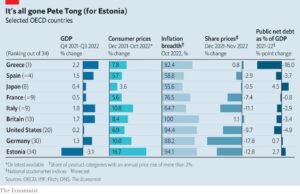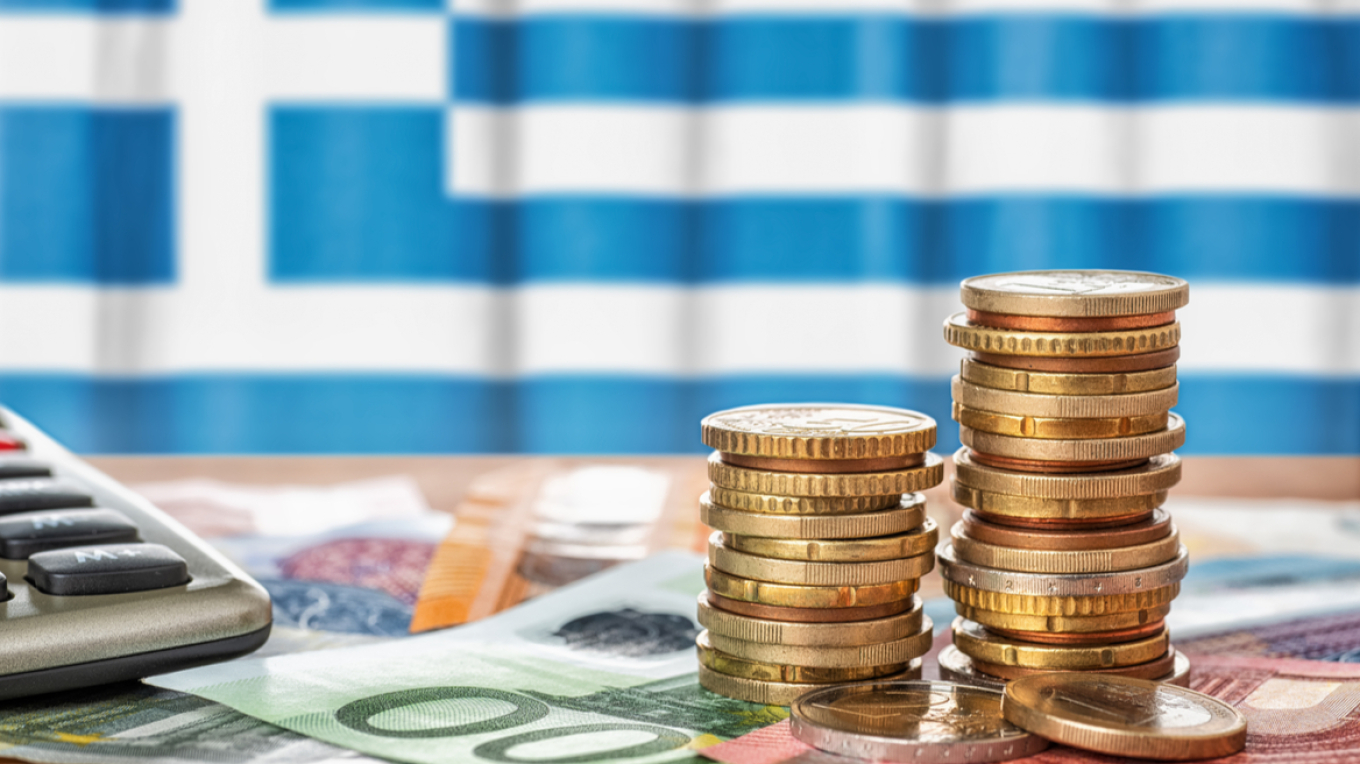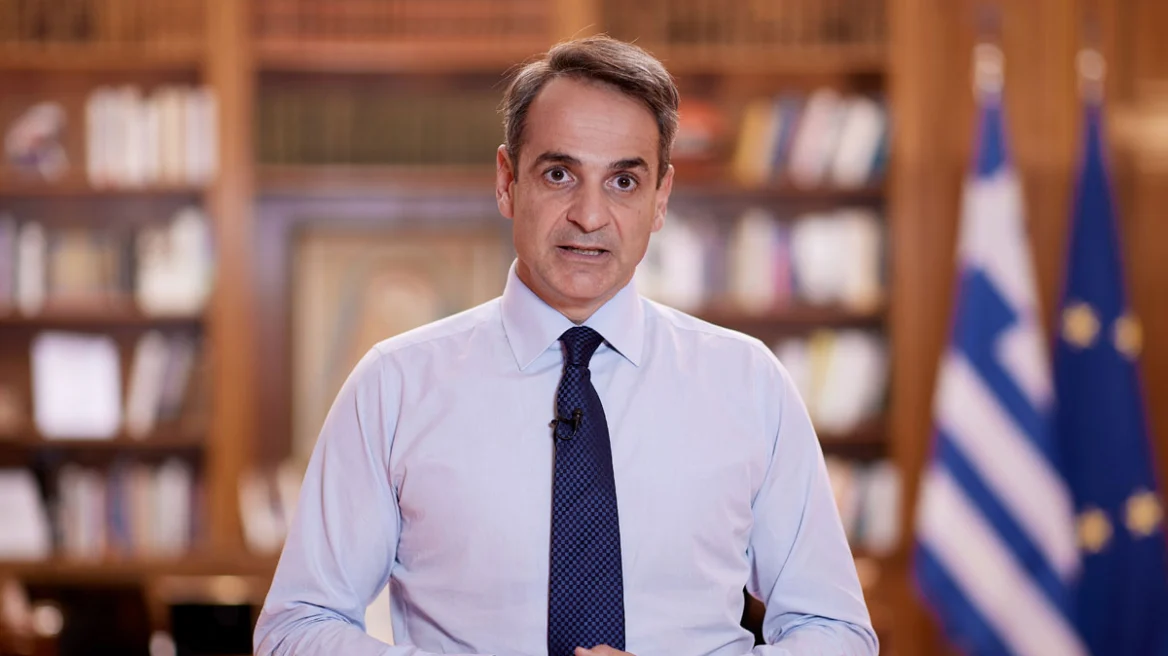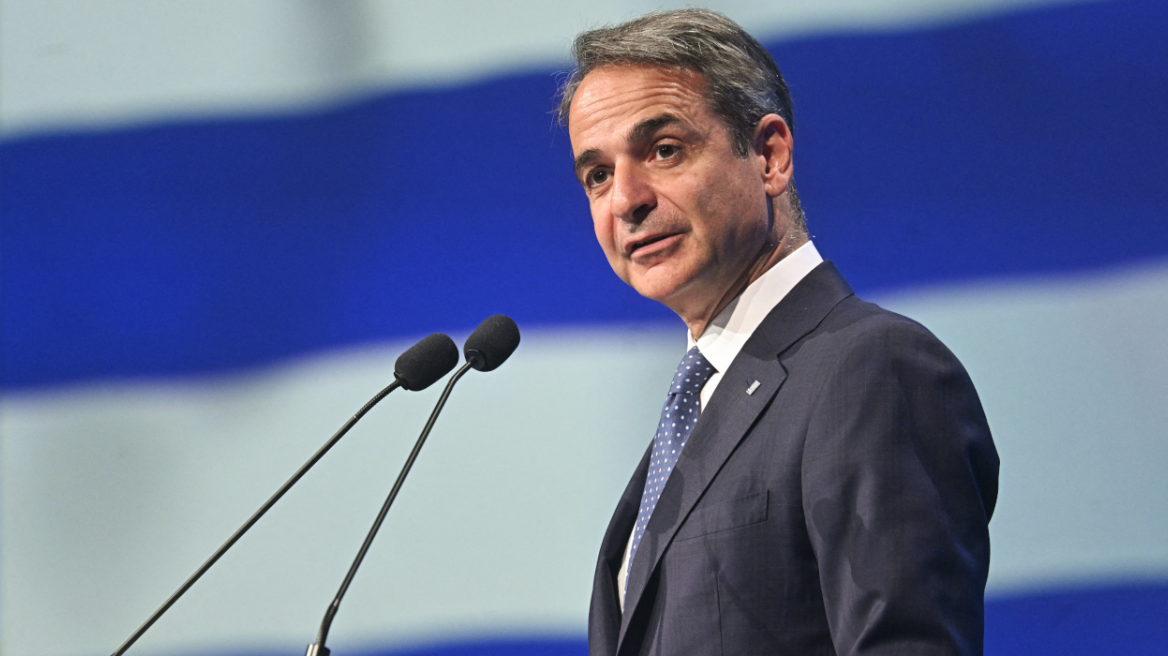Greece emerged as the economic winner for 2022, according to the British Economist. The headline comes at a difficult time and in a year when inflation has hit 10% year-on-year, cutting household incomes across the developed world.
The Economist assessed the differences by compiling data on five economic and financial indicators. Specifically, the data was drawn from the following indicators: GDP, inflation, inflation range, stock market performance, and public debt in 34 countries.
Each economy was ranked based on how well it did on each indicator and an overall score was produced.
Economic party in the Mediterranean
The British magazine concluded that for the first time in a long time the ‘economic party’ is taking place in the Mediterranean, while Greece is at the top of the list.
Other countries emerging from the economic pits they found themselves in in the early 2010s, such as Portugal and Spain, also score highly. Israel also achieved good performance, despite the political chaos.
On the contrary, Germany recorded low performances. Also, Estonia and Latvia, which had won praise in the previous decade for rapid reforms, are now lagging behind.
The first indicator examined is GDP
Norway, helped by high oil prices, and Turkey, which is not implementing sanctions against Russia, fared better than most countries. The impact of the Covid-19 pandemic is also great. Thanks to extremely strict lockdowns and the collapse of inbound tourism, a year ago much of southern Europe was in dire straits. The area should have had a decent year.
Ireland probably had a strong year, although not as strong as the GDP numbers suggest. The activities of large multinational companies, many of which are registered there for tax purposes, distort the figures. By contrast, America’s GDP numbers are deceptively weak: statisticians struggle to explain the impact of massive stimulus packages.
Inflation
The second measure is the changes in the price level from late 2021. Away from the world’s spotlight, some countries have seen relatively low inflation. In Switzerland, consumer prices have risen by just 3%. The central bank, helped by a strong currency, responded quickly to the rise in prices earlier in the year. Countries with non-Russian energy sources — such as Spain, which gets its natural gas from Algeria — also fared better than average. Those dependent on Vladimir Putin have really suffered. In Latvia, average consumer prices rose by 20% this year.
The third measure is also related to inflation. It calculates the share of items in each country’s inflation basket that has increased by more than 2% in the past year. This provides an indication of how much inflation has taken hold, which also suggests how quickly it will fall in 2023.
For example, in Italy, consumer prices rose by 11% this year. However, only 2/3 of its basket has inflation above target. Britain is in a very difficult position, and this is because the price of each category in its basket is rising rapidly.
The Economist’s latest index concerns the change in net public debt as a percentage of GDP. In the short term, governments can address economic cracks by increasing spending or cutting taxes. But this can create more debt. Some governments have spent enough money to deal with the cost of living squeeze. Germany has earmarked 7% of its GDP to help with energy costs, meaning the debt-to-GDP ratio has risen.
Other countries have not followed fiscal extravagance, thus helping to improve the fiscal picture. Public debt in Southern European countries appears to be on a downward trajectory.

Ask me anything
Explore related questions





